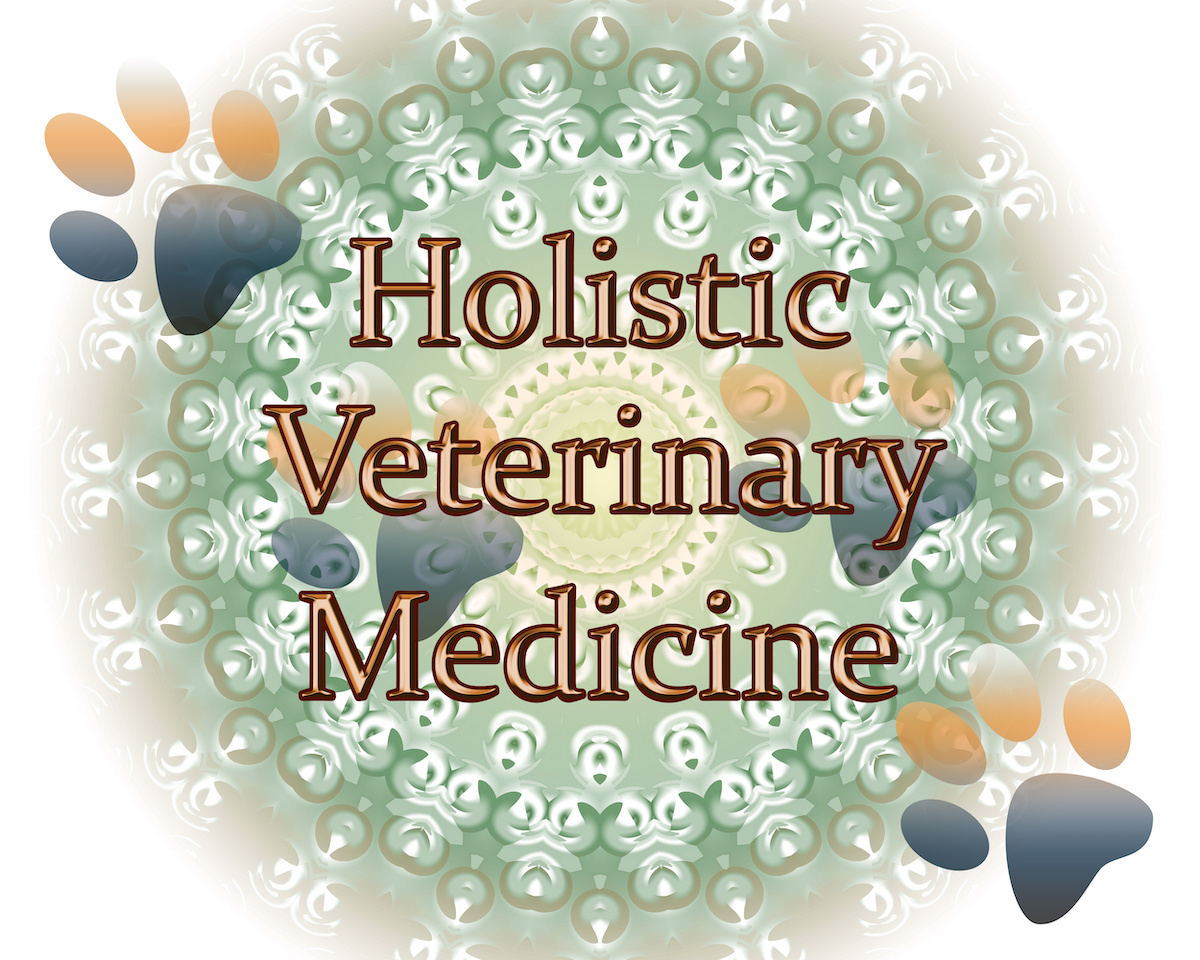Holistic vets and conventional vets have the same training, but holistic vets focus on natural healing methods and use drugs and surgery as a last resort. They consider the overall health of the animal’s body and use alternative treatments like homeopathy, herbalism, acupuncture, and dietary changes.
On the other hand, conventional vets primarily rely on pharmaceuticals and surgical procedures for treatment. Both types of vets have their pros and cons, and it ultimately depends on personal preference and the specific needs of the animal. However, holistic vets offer a more holistic approach to veterinary care and can be beneficial for those seeking alternative treatment options for their pets.
:max_bytes(150000):strip_icc()/Alycia-23bfdd6248f84637b8d0a64a607409a9.jpg)
Credit: www.thesprucepets.com
Introduction To Holistic Vets And Conventional Vets
Introducing holistic vets versus conventional vets, offering a natural approach to healing through alternative treatments like homeopathy and acupuncture. Unlike conventional vets, holistic vets prioritize the overall well-being of your pet’s body and use drugs and surgery as a last resort.
What Is A Holistic Vet?
holistic vet is a veterinarian who takes a more natural and holistic approach to healing animals. They believe in treating the whole animal rather than just focusing on the symptoms or specific diseases. Holistic vets typically have the same training as conventional vets but have sought additional education in alternative therapies and treatment modalities. They incorporate various ‘alternative’ treatments and lifestyle changes into their practice, such as homeopathy, acupuncture, herbalism, massage, and dietary changes. The goal of a holistic vet is to optimize the overall well-being of the animal, promoting balance and harmony within the body.What Is A Conventional Vet?
conventional vet, also known as a traditional or allopathic vet, follows the more conventional approach to veterinary medicine. They diagnose and treat illnesses and diseases using scientific evidence-based methods, pharmaceutical drugs, and surgery. Conventional vets primarily focus on managing symptoms and providing immediate relief. They rely on diagnostic tests, medical procedures, and medications to address specific health problems. While conventional vets may incorporate some complementary treatments, their approach is more focused on the use of modern medical interventions. Overall, the key difference between holistic vets and conventional vets lies in their treatment philosophies and methods. Holistic vets prioritize natural therapies, alternative treatments, and lifestyle changes to promote the overall well-being of the animal, while conventional vets rely more on traditional Western medicine approaches, such as medication and surgery, to diagnose and treat specific health conditions.
Credit: mainstvets.com
Training And Approach
Holistic vets take a natural approach to healing, using alternative treatments and lifestyle changes before resorting to medication. They consider the health of the whole body and use drugs and surgery as a last resort, making them an alternative option to conventional vets.
Holistic veterinarians and conventional veterinarians have different training and approaches to veterinary care. The training of holistic vets focuses on a more integrative and natural approach to healing. On the other hand, conventional vets are trained in the traditional medical model.Training Of Holistic Vets
Holistic vets typically have the same foundational training as conventional vets. They complete a Doctor of Veterinary Medicine (DVM) degree from an accredited veterinary school. However, what sets holistic vets apart is their additional training in alternative and complementary therapies. They often pursue further education in modalities such as acupuncture, homeopathy, herbalism, chiropractic care, and nutrition. This training equips them with a broader toolkit to approach animal health and wellness.Training Of Conventional Vets
Conventional vets follow a more traditional medical approach to veterinary care. They complete the same DVM degree as holistic vets, which includes extensive training in anatomy, physiology, pathology, pharmacology, and surgery. Their focus is primarily on diagnosing and treating diseases using pharmaceuticals, surgical interventions, and other scientifically proven methods.Approach Of Holistic Vets
Holistic vets take a more holistic and comprehensive approach to animal health. They consider the animal as a whole, including its physical, emotional, and environmental factors. Their goal is to identify and address the underlying cause of the problem, rather than just treating the symptoms. Holistic vets often emphasize the importance of preventive care, natural therapies, and lifestyle changes to promote overall wellness.Approach Of Conventional Vets
Conventional vets primarily focus on diagnosing and treating specific medical conditions using established scientific methods. They rely on laboratory tests, medical imaging, and pharmaceuticals to manage and treat diseases. Their approach is often more symptom-oriented, aiming to alleviate immediate health issues rather than considering the holistic well-being of the animal. In summary, holistic and conventional vets differ in their training and approach to veterinary care. Holistic vets have additional training in alternative and complementary therapies, focusing on a more natural and holistic approach to healing. Conventional vets follow a more traditional medical model, emphasizing scientific evidence and treatment protocols. Ultimately, the choice between the two approaches depends on the individual pet owner’s preferences and the specific needs of their animal companion.Treatment Options
When seeking treatment options for your pet, it’s important to consider the difference between holistic vets and conventional vets. Holistic vets take a natural approach, recommending alternative treatments and lifestyle changes before turning to medicine, while conventional vets focus on traditional methods.
Holistic Treatment Options
When it comes to holistic treatment options, holistic vets take a more natural approach to healing. They believe in treating the whole animal, including the physical, emotional, and mental aspects of their well-being. Here are some holistic treatment options that holistic vets may recommend:- Homeopathy: Holistic vets may use homeopathic remedies to stimulate the body’s natural healing abilities. These remedies are made from natural substances and aim to treat the underlying cause of the illness or imbalance.
- Herbalism: Herbal medicine has been used for centuries to support the health of animals. Holistic vets may prescribe specific herbs or herbal formulations to address various health conditions.
- Acupuncture: This ancient Chinese therapy involves inserting thin needles into specific points on the body to promote healing and restore balance. It can be used to treat a wide range of conditions, including pain, inflammation, and immune system disorders.
- Massage: Just like humans, animals can benefit from the therapeutic effects of massage. Holistic vets may use massage techniques to improve circulation, reduce stress, and alleviate muscle tension in their animal patients.
- Dietary Changes: Holistic vets understand the importance of nutrition in maintaining optimal health. They may recommend dietary changes, including the use of natural and organic ingredients, to support the overall well-being of the animal.
Conventional Treatment Options
Conventional vets, on the other hand, focus more on the use of pharmaceutical drugs and procedures to treat illnesses and diseases in animals. Here are some conventional treatment options that conventional vets may recommend:- Medication: Conventional vets often prescribe medication to manage symptoms and alleviate pain in animals. These medications may include antibiotics, painkillers, and anti-inflammatory drugs.
- Surgery: In certain cases, surgery may be necessary to treat conditions such as tumors, injuries, or organ dysfunctions. Conventional vets have the expertise to perform surgical procedures and provide post-operative care.
- Diagnostic Tests: Conventional vets rely on various diagnostic tests, such as blood tests, X-rays, and ultrasounds, to assess the health of animals and determine the underlying cause of their symptoms.
- Vaccinations: Conventional vets emphasize the importance of vaccinations in preventing infectious diseases in animals. They follow standard vaccination protocols to ensure the animals’ immunity against common diseases.
- Physical Therapy: For animals recovering from injuries or surgeries, conventional vets may recommend physical therapy sessions to facilitate their rehabilitation process. These sessions often involve exercises and therapeutic techniques tailored to the individual animal’s needs.

Credit: www.parklandanimalclinic.com
Pros And Cons
When it comes to healthcare for your furry friends, there are two main approaches: holistic vets and conventional vets. Each approach has its own set of pros and cons. In this section, we will explore the advantages and disadvantages of both holistic and conventional treatments for your pets.
Pros Of Holistic Treatments
- Natural Healing: Holistic vets take a more natural approach to healing, focusing on alternative treatments such as homeopathy, herbalism, acupuncture, massage, and dietary changes. These natural remedies often have fewer side effects compared to conventional medications.
- Complementary Options: Holistic treatments can be used in conjunction with conventional treatments, offering a more comprehensive approach to your pet’s healthcare. They can provide additional support and help manage chronic conditions.
- Preventative Care: Holistic vets not only treat existing conditions but also emphasize preventative care, promoting a healthy lifestyle and diet to prevent future illnesses and improve overall well-being.
- Individualized Approach: Holistic treatments focus on treating the whole pet, taking into account their physical, mental, and emotional well-being. This personalized approach aims to address the root cause of the problem rather than just treating the symptoms.
Cons Of Holistic Treatments
- Limited Scientific Evidence: Some holistic treatments lack extensive scientific research and evidence to support their effectiveness. It can be challenging to determine their true efficacy and determine the appropriate dosage or treatment plan.
- Longer Treatment Process: Holistic treatments often require a longer treatment process compared to conventional medications. Natural remedies may take time to show results and require regular monitoring and adjustments.
- Availability and Cost: Holistic remedies may not be as readily available as conventional medications, and their cost can vary significantly. Additionally, insurance coverage for these treatments may be limited.
- Not Suitable for Emergencies: Holistic treatments are not appropriate for emergency situations. Conventional veterinary care is necessary for immediate and life-threatening conditions that require urgent medical intervention.
Pros Of Conventional Treatments
- Scientific Backing: Conventional treatments are based on extensive scientific research and clinical trials, providing a strong evidence base for their effectiveness in treating various conditions.
- Rapid Response: Conventional medications often provide quick relief and are particularly useful in emergencies or acute situations that require immediate attention.
- Widely Available: Conventional medications and treatments are readily available at most veterinary clinics and pharmacies, making them easily accessible for pet owners.
- Covered by Insurance: Many insurance plans cover conventional treatments, reducing the financial burden for pet owners.
Cons Of Conventional Treatments
- Potential Side Effects: Conventional medications may come with a risk of side effects, ranging from mild to severe. These side effects can impact your pet’s overall health and well-being.
- Suppression of Symptoms: Conventional treatments often focus on symptom management rather than addressing the underlying cause. This may lead to the recurrence of conditions or the development of new health issues.
- Dependency on Medications: Some conventional treatments require long-term medication use, leading to dependency and potential complications from prolonged use.
- Limited Individualization: Conventional treatments may not account for the individual differences and unique needs of each pet. The same medication may not work equally well for all animals.
Choosing The Right Vet
When it comes to choosing the right vet for your beloved pet, there are a few important considerations to keep in mind. Whether you’re leaning towards a holistic vet or a conventional vet, making an educated decision is crucial for your pet’s well-being.
Considerations For Choosing A Holistic Vet
When considering a holistic vet, there are a few key factors to take into account:
- Natural approach: Holistic vets take a much more natural approach to healing and care, focusing on alternative treatments and lifestyle changes before resorting to medicine.
- Diverse treatment options: Holistic vets may recommend various alternative therapies such as homeopathy, herbalism, acupuncture, massage, and dietary changes.
- Complementary treatments: If your conventional vet does not practice holistic medicine, consulting with a holistic vet can provide specific complementary treatment options for your pet.
- Additional expertise: Holistic vets typically have the same training as conventional vets but have sought additional training in other modes of treatment.
Considerations For Choosing A Conventional Vet
Choosing a conventional vet also requires careful consideration. Here are some factors to keep in mind:
- Specialization: Conventional vets typically specialize in specific areas, such as companion animals, exotic animals, livestock, or laboratory animals. Consider which specialization aligns with your pet’s needs.
- Emergency care: Make sure the conventional vet you choose offers emergency care services or has a reliable referral system in place for emergencies.
- Insurance acceptance: If you have pet insurance, check whether the conventional vet accepts your insurance provider.
- Technological advancements: Conventional vets often have access to advanced medical equipment and facilities, which can be beneficial for diagnosing and treating complex medical conditions.
When making your decision, it’s important to weigh the pros and cons of both holistic and conventional approaches, keeping in mind what aligns best with your pet’s needs and your personal beliefs. Whether you choose a holistic vet or a conventional vet, the ultimate goal is to ensure the well-being and health of your furry friend.
Frequently Asked Questions Of Everything You Need To Know About Holistic Vets Vs. Conventional Vets
Should I Take My Dog To A Holistic Vet?
Consult with a holistic vet for complementary treatment options, but not as a replacement for routine healthcare and emergency treatment. Holistic vets take a natural approach using alternative therapies such as homeopathy, herbalism, and acupuncture. They consider the whole body and use drugs and surgery as a last resort.
What Is The Holistic Approach To Veterinary Care?
A holistic approach to veterinary care focuses on natural healing methods before resorting to drugs and surgery. Holistic vets recommend alternative treatments such as homeopathy, herbalism, acupuncture, and dietary changes. This approach considers the overall health of the pet’s body and uses drugs and surgery as a last resort.
Holistic vets have received the same training as conventional vets but explore unconventional forms of treatment.
What Do You Think Are Some Of The Pros And Cons Of Using Holistic Treatments For Diseases In Animals?
Holistic treatments for diseases in animals have pros and cons. The benefits include affordability and reduced stress. However, holistic treatment can be unreliable and is often a lengthy process.
What Are The Two Types Of Vets?
There are two types of vets: Companion Animal Veterinarians and Veterinary Specialists. Companion Animal Vets provide routine healthcare for pets, while Veterinary Specialists focus on specific areas of veterinary medicine.
Conclusion
Choosing between holistic vets and conventional vets depends on your pet’s specific needs and your personal preferences. Holistic vets take a natural approach to healing and may recommend alternative treatments before using medication. On the other hand, conventional vets focus on traditional medicine.
It’s important to consider the pros and cons of each approach and consult with both types of vets to determine the best course of action for your pet. Remember, holistic and conventional therapies can complement each other for comprehensive pet healthcare.

